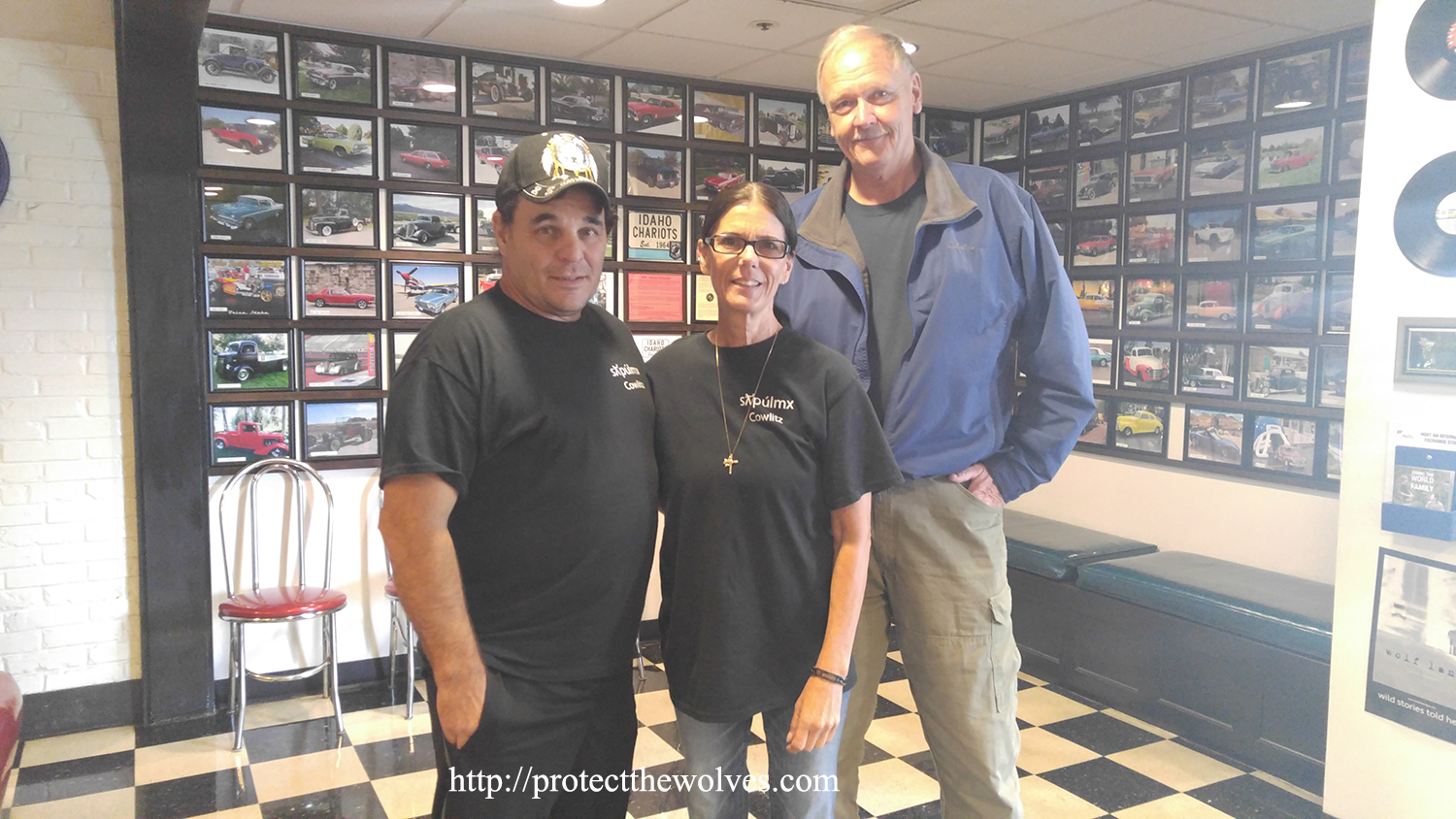
Protect The Wolves® With Carter in Boise
Protect The Wolves® would like to add that it was our Pleasure to Meet with the Man Behind this story on September, 24th. FYI, when WDFW’s Donny Martorello agreed to a Phone Conference back in August, with another States Fish and Game Department we asked Carter if he could Participate. Carter was very Gracious to say yes, we appreciate his offer in more ways than can be described. However WDFW’s Donny Martorello appears more concerned with Killing Wolves than saving them as we suggested to him on multiple occasions. Apparently they truly did bring their Idaho opinion with them when Unsworth showed up. what do you think? Yes or no?
If someone had told Carter Niemeyer in the 1980s that he would become one of the country’s strongest proponents for wolf recovery, it probably would have come as a surprise.
At the time, the Iowa native was working as a trapper for the Montana Department of Livestock and a district supervisor for USDA Wildlife Services, managing and controlling large predators. Eventually, he was chosen as the federal agency’s wolf management specialist covering Idaho, Montana and Wyoming. He was responsible for livestock depredation investigations and wolf capture and removal.
He was eventually recruited by the U.S. Fish and Wildlife Service to run the federal wolf recovery program in Idaho, a position from which he retired in 2006.
Now an Idaho resident, Niemeyer has been a hunter, trapper and wildlife advocate his whole life—earning bachelor’s and master’s degrees in wildlife biology in the 1970s—though over the years, his attitude toward wolves and their place in the world changed dramatically.
Wolves, he believes, according to his website, “add to the outdoor experience, and people who see or hear them should consider the experience thrilling. Wolves do not, as many believe, kill everything in sight, destroy their own food supply, or lick their chops at kids waiting at bus stops.”
Since retiring, he has worked for Washington State University on livestock/wolf interaction research and in northern California on emerging wolf issues. His work has taken him to England, Scotland, France and Kyrgyzstan.
In 2010, he published “Wolfer,” a memoir of his career. His second memoir, “Wolf Land,” was published earlier this year, and on Thursday, Sept. 29, Niemeyer will appear at 6 p.m. at The Community Library to talk about the state of wolf recovery in the U.S. over the past 20 years and sign copies of “Wolf Land.”
The appearance is sponsored by the local organization Living With Wolves, and Garrick Dutcher, research and programs director for the organization, said that Niemeyer—with whom he has been friends for a long time—has a unique perspective on the subject of wolves.
“He’s had quite the transformative career,” Dutcher said. “No one can tell a story about wolves quite like Carter.”
Dutcher said Niemeyer has the ability to connect well with hunters and others who may have a dim view of wolves and tell them things about wolves based on his decades of working with them—having handled more than 300 live wolves over his career—things that many hunters might not want to hear, Dutcher said.
“He tries to get them past the misinformation and the mythology around wolves,” Dutcher said. “We’re trying to find out how to help minimize the conflict between wolves and livestock.”
Dutcher said disease, birthing problems and bad weather cause many more livestock deaths than predators do.
“It’s hard to control the weather, though” he said. “Predators are an easy target.”
Dutcher said Niemeyer’s work is important because getting hunters to change their minds about wolves could help spur better wolf recovery efforts.
“I’d like the nonconsumptive voice to have a larger say,” he said. “Right now, the hunters’ voice is the loudest and dictates wildlife management.”
Source: 20 years of wolf recovery – Idaho Mountain Express Newspaper: Events
